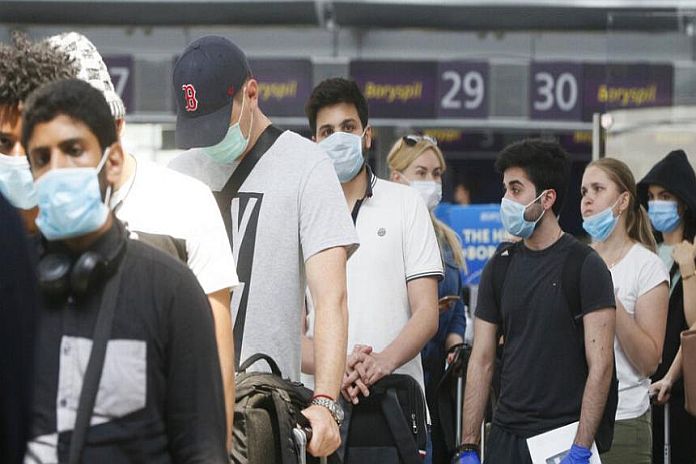By Caribbean News Global ![]()
COPENHAGEN, Denmark – With nine million confirmed COVID-19 cases and over 400,000 deaths reported to World Health Organisation (WHO) the pandemic continues to accelerate, with a record number of new coronavirus cases reported on Sunday, with 183,020 confirmed in 24 hours.
WHO regional director for Europe Dr Hans Henri P. Kluge, said Thursday, that “Over 2.5 million cases have been reported from Europe. While the European region is reporting a decreasing proportion of global cases than earlier in the year, the region continues to report close to 20,000 new cases and over 700 new deaths daily. Last week, Europe saw an increase in weekly cases for the first time in months.
“For weeks I have spoken about the risk of resurgence as countries adjust measures. In several countries across Europe, this risk has now become a reality – 30 countries have seen increases in new cumulative cases over the past two weeks. In 11 of these countries, accelerated transmission has led to very significant resurgence that if left unchecked will push health systems to the brink once again in Europe.”
Countries such as Poland, Germany, Spain and Israel have responded quickly to dangerous outbreaks of COVID-19 associated with schools, coal mines, and food production settings that have occurred over the past several weeks. Where new clusters of cases appeared, these have been controlled through rapid and targeted interventions. This is very good news,” Dr Kluge, WHO regional director for Europe, said in a statement, “Bravo to the authorities.”
Dr Kluge highlighted digital technology and artificial intelligence have also proved to be effective in other aspects of pandemic response.
In France, an artificial intelligence–based virtual phone assistant is able to respond to more than a thousand people at the same time. Italy is trialling use of an AI-based technology that utilizes a smartphone app and camera to capture vital statistics such as heart rate, heart rate variability, oxygen saturation and respiration rate in real-time. In Sweden, telemedicine has been used to support traditional care, particularly in rural settings, and is now being used for enhanced COVID-19 response.
Digital technologies have proved to be powerful tools to fight COVID-19. However, these same technologies have exposed us to a tsunami of information and have raised many issues around data protection and privacy.
WHO regional director for Europe convey three messages:
First, go digital but go wisely. Digital helps health systems cope with delivery of essential health care, particularly during emergencies. But integrating digital health must be done carefully and wisely, in partnership with the public and patients.
Secondly, it’s all about trust. Digital tools rely on public trust. Interventions must consider the privacy and security of individuals and their data. Fundamental human and gender rights must be preserved in digital environments and must not be forgone in times of a pandemic. It is the responsibility of governments to address data ownership, use, consent and protection.
Thirdly, we cannot afford to have people than cannot afford digital health. Not all social groups are equally able to harness the potential of digital technologies to combat the virus. In the European Region, national data on household internet access varies from 74 percent to 87 percent, with greater variation at subnational levels and between population groups. We cannot afford a digital divide on top of the social and economic divide.





